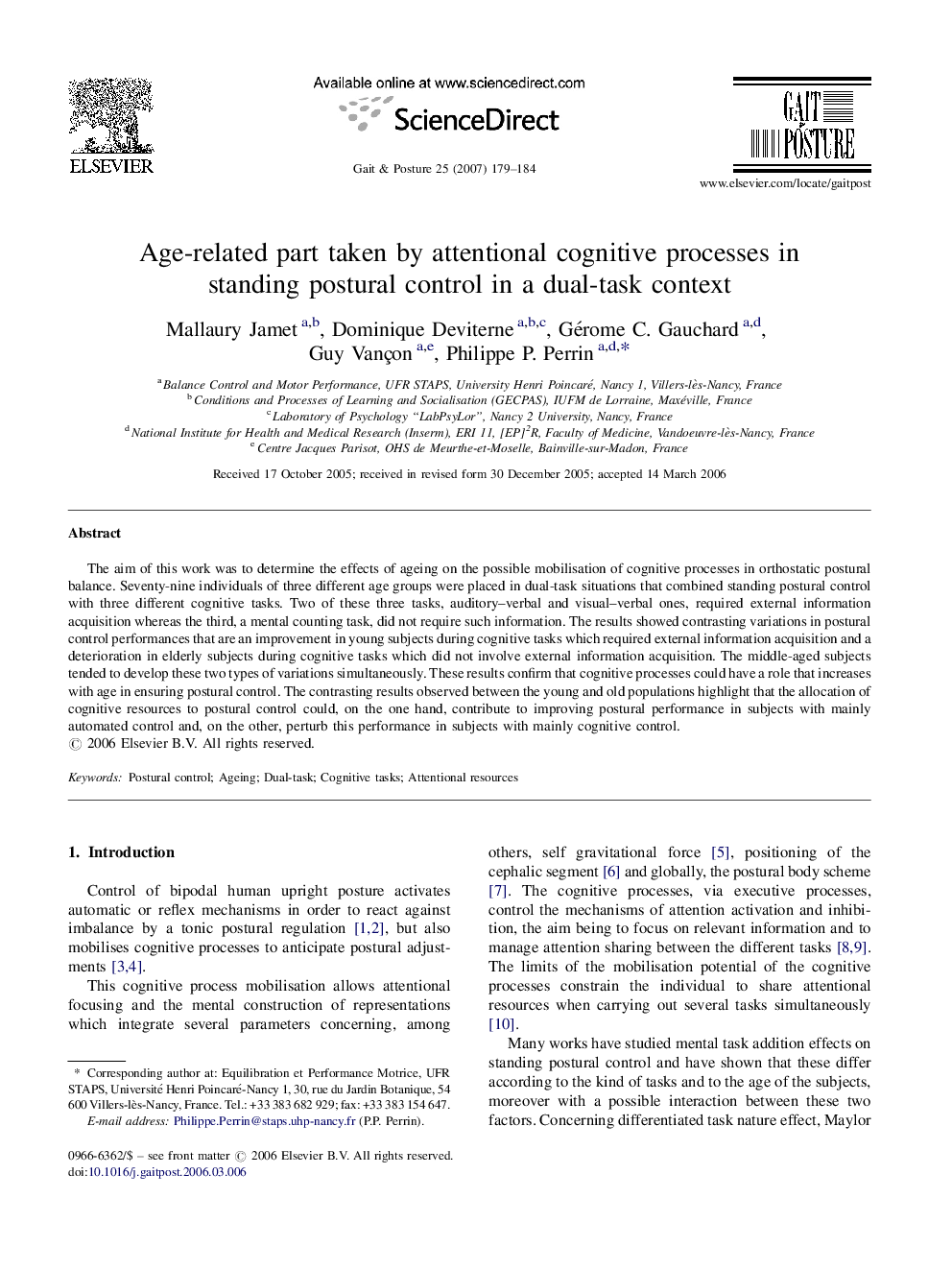| Article ID | Journal | Published Year | Pages | File Type |
|---|---|---|---|---|
| 4058588 | Gait & Posture | 2007 | 6 Pages |
The aim of this work was to determine the effects of ageing on the possible mobilisation of cognitive processes in orthostatic postural balance. Seventy-nine individuals of three different age groups were placed in dual-task situations that combined standing postural control with three different cognitive tasks. Two of these three tasks, auditory–verbal and visual–verbal ones, required external information acquisition whereas the third, a mental counting task, did not require such information. The results showed contrasting variations in postural control performances that are an improvement in young subjects during cognitive tasks which required external information acquisition and a deterioration in elderly subjects during cognitive tasks which did not involve external information acquisition. The middle-aged subjects tended to develop these two types of variations simultaneously. These results confirm that cognitive processes could have a role that increases with age in ensuring postural control. The contrasting results observed between the young and old populations highlight that the allocation of cognitive resources to postural control could, on the one hand, contribute to improving postural performance in subjects with mainly automated control and, on the other, perturb this performance in subjects with mainly cognitive control.
